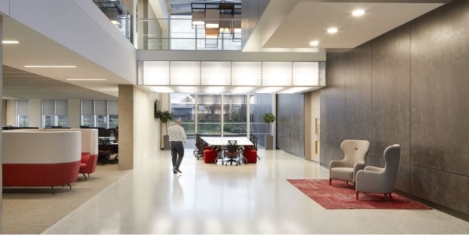June 14, 2019
The greenest building is no building, our false craving for silence and some other stuff
 As climate scientists issue increasingly stark warnings about the global environmental catastrophe that is increasingly likely within a very short time frame, Will Jennings issues a timely reminder in the Architects Journal that the greenest type of building is no building at all. And that is doubly so when the building we are talking about is The Tulip, which would clearly be a very bad idea at any time. The author takes particular exception to the glossy environmental pledges made by high profile architects when contrasted with the ugly, vacuous grandstanding typified by The Tulip. (more…)
As climate scientists issue increasingly stark warnings about the global environmental catastrophe that is increasingly likely within a very short time frame, Will Jennings issues a timely reminder in the Architects Journal that the greenest type of building is no building at all. And that is doubly so when the building we are talking about is The Tulip, which would clearly be a very bad idea at any time. The author takes particular exception to the glossy environmental pledges made by high profile architects when contrasted with the ugly, vacuous grandstanding typified by The Tulip. (more…)









 AI and its transformational effect on the global business landscape was the dominant theme on day one of the
AI and its transformational effect on the global business landscape was the dominant theme on day one of the 




 An emerging super-group of employees and consumers in the UK is adding intense pressure to already challenged C-suite leaders who are navigating tough economic, technological and geo-political environments – further threatening company growth, a new Accenture (NYSE: ACN) study finds. With nearly three-quarters (73 percent) of these powerful stakeholders believing they have the potential to destroy company value in the long term, the C-suite understands the need to respond.
An emerging super-group of employees and consumers in the UK is adding intense pressure to already challenged C-suite leaders who are navigating tough economic, technological and geo-political environments – further threatening company growth, a new Accenture (NYSE: ACN) study finds. With nearly three-quarters (73 percent) of these powerful stakeholders believing they have the potential to destroy company value in the long term, the C-suite understands the need to respond. 
 Employees trust their CEOs less than they did seven years ago, although trust in line managers remains the same, new research claims. It also suggests that one of the reasons for mistrust is that CEOs seem unable to understand the role of their employees and the contributions they make to working culture. According to Trust in Leaders, by The Institute of Leadership & Management, workers trust their CEOs considerably less than they did in 2011, as compared to then, the results show trust in CEOs has fallen by 8 percent.
Employees trust their CEOs less than they did seven years ago, although trust in line managers remains the same, new research claims. It also suggests that one of the reasons for mistrust is that CEOs seem unable to understand the role of their employees and the contributions they make to working culture. According to Trust in Leaders, by The Institute of Leadership & Management, workers trust their CEOs considerably less than they did in 2011, as compared to then, the results show trust in CEOs has fallen by 8 percent.
 A new study suggests that more than 7 in 10 Britons working in production are concerned that their jobs may be made obsolete thanks to developments in Artificial Intelligence in the coming years. What’s more, over two fifths of respondents believe AI could rebel against humans. As technology develops and more money and time is invested into AI, the public’s opinion has been explored, with those working in production, HR and construction uncovered to be the most worried that AI could take their jobs away from them.
A new study suggests that more than 7 in 10 Britons working in production are concerned that their jobs may be made obsolete thanks to developments in Artificial Intelligence in the coming years. What’s more, over two fifths of respondents believe AI could rebel against humans. As technology develops and more money and time is invested into AI, the public’s opinion has been explored, with those working in production, HR and construction uncovered to be the most worried that AI could take their jobs away from them. 






 Today, the
Today, the 






